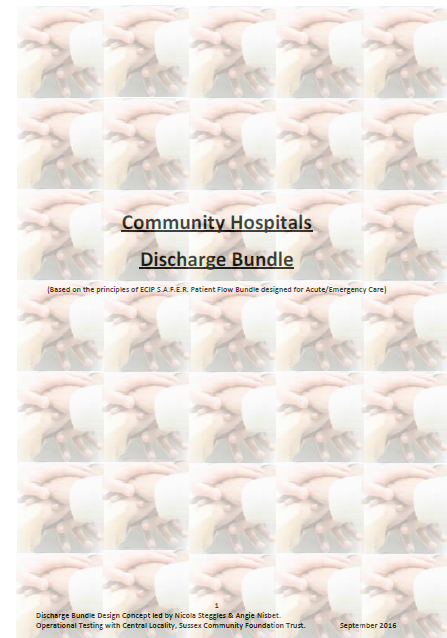These beds are housed in 12 geographically disperse Community units, managed by 3 separate locality management teams, with the support of four CCG’s.
Determining the admission and discharge flow position and available bed state required teams to work extra hard chasing the Wards at regular intervals each day for information. Followed by the manual updating of patient tracking lists communicating to the wider health and social care system by means of situation reports and time intensive, challenging conference calls.
The significant problem being by the time the information was for publication it was not wholly accurate as the availability of capacity had moved on. Operationally the Trust demonstrated, using outdated capacity information whilst in an effort to respond to all system colleagues, a chaotic approach at the most pressured time of year.
In order to defuse the pressure and establish a joined up approach within operational and clinical environments a plan was created.
This plan had 3 main elements:
1. The creation of a Discharge Bundle, a set of 13 work standards when applied coherently enabled each locality to manage patient flow through each unit in a consistent manner. Key standards include daily Ward Board Rounds; Daily Virtual Bed Meetings and use of the ECIP SAFER bundle Red/ Green days. The discharge bundle is akin to system checklists used by High Reliability Organisations so all eyes are on daily operations, taking no mediocrity in work flow for granted.
2. The development of a Bed Management System (BMS) that enabled real time tracking of patient admission, discharge and flagging of delays in discharge. The information from the BMS fed a Ward Dashboard and patient tracking list which highlights length of stay and days to planned discharge date. This tracking helps Matrons and system partners in Local Authorities work to minimise delay and plan the interventions required for timely discharge.
3. SHREWD x4 times a day is a ‘live’ feed of bed availability and discharge delays directly from the BMS. SHREWD is the system wide portal to enable wider operational capacity and resilience planning. SCFT is the first of the Sussex system partners to deliver this daily real time bed position to the wider system. This success was made possible because of the creation and delivery of both the Discharge Bundle and the BMS.
SCFT are now facing Winter 2016/17 in a much stronger position to manage its bed capacity and offer wider system resilience.
The Trust can alert partners in a timely manner of potential discharge delays by reason for delay, most of which have been lack of capacity for home care and residential/ nursing home availability.
There is no longer a need to manage by anecdote, but, by factual information from the Ward Dashboard, demonstrating the gaps in service in the Community to facilitate intelligent commissioning and forward planning.
Co authors are Angie Nisbet - [email protected] and Alison Whitehorn - [email protected]

